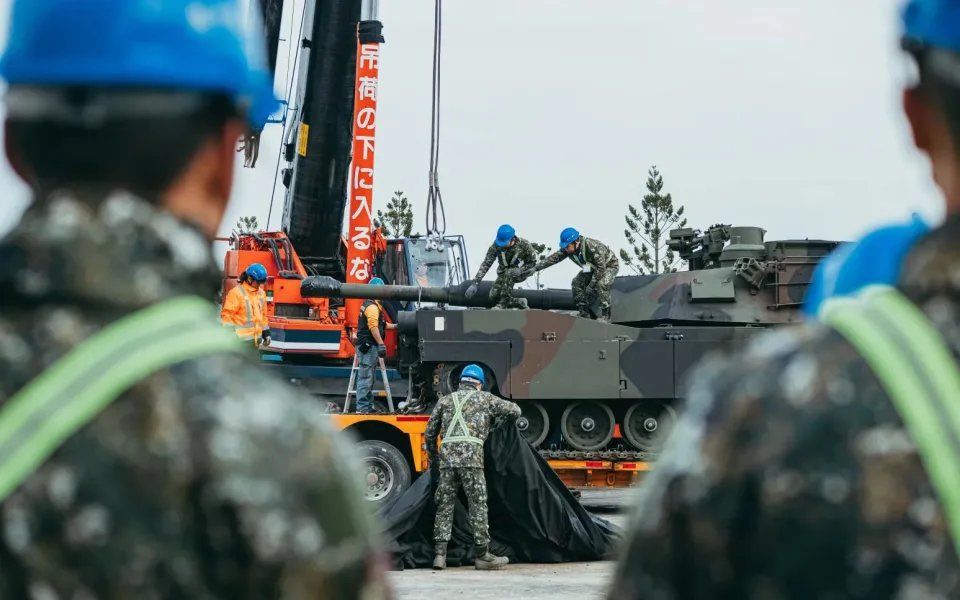Already a subscriber? Make sure to log into your account before viewing this content. You can access your account by hitting the “login” button on the top right corner. Still unable to see the content after signing in? Make sure your card on file is up-to-date.
Taiwan has received its first delivery of state-of-the-art M1A2 Abrams battle tanks from the United States, a major step in modernizing its defense capabilities amid escalating tensions with China.
WATCH: Taiwan's new M1A2 Abrams tanks have finally arrived and are currently stationed at an army base in Hsinchu.
— Jaime Ocon 歐海美 (@JaimeOcon1) December 16, 2024
Source: Military News Agency pic.twitter.com/nt8wuounyG
Some shit you should know before you read: Back in 2019, Taiwan signed a $1.4 billion deal with the United States to procure 108 advanced M1A2 Abrams tanks as part of an effort to modernize its aging armored fleet. The Abrams tanks were intended to replace the island’s outdated CM11 Brave Tiger tanks and the US-made M60A3 tanks, which had been in service since the 1950s. US lawmakers pushed for the sale in order to bolster Taiwan’s military with cutting-edge technology and enhance its ability to deter potential threats from China.

What’s going on now: According to the Liberty Times, citing Taiwanese defense sources, Taiwan has received its first batch of 38 M1A2 Abrams tanks as part of the 2019 procurement deal for 108 units. Additional deliveries of 42 tanks are expected in 2025, and the remaining 28 by 2026. Alongside the Abrams tanks, Taiwan has recently strengthened its defense arsenal with other US military platforms, including MGM-140 Army Tactical Missile Systems, High Mobility Artillery Rocket Systems (HIMARS), and Harpoon anti-ship missile systems. They also signed agreements to acquire 1,000 attack drones and advanced radar systems while receiving upgraded self-propelled howitzers and anti-tank missiles to strengthen its ground and air defenses amid rising regional tensions.

This all comes as China has expressed anger over the US sales of military equipment to Taiwan, accusing Washington of violating its commitment to the One China policy. Beijing has consistently condemned these arms deals, arguing that they embolden “pro-independence” forces in Taiwan and undermine regional stability. China’s foreign ministry has called on the United States to halt all military cooperation with Taiwan, arguing that such actions interfere in China’s internal affairs and threaten its sovereignty.
Chinese officials, including President Xi Jinping, have also criticized US arms sales to Taiwan as a violation of the One China policy, which is the foundation of US-China diplomatic relations. Established through a series of agreements in the 1970s, this policy acknowledges Beijing’s claim over Taiwan while allowing the United States to maintain unofficial ties with the island. While the US maintains its commitment to the policy, it justifies arms sales under the Taiwan Relations Act, which mandates support for Taiwan’s self-defense—a stance Beijing argues undermines the agreement.






